The Kids Are Telling Us Very Clearly That They Are Not Alright
When young people are worried about the world that their future children and grandchildren will inhabit, something has gone deeply wrong.
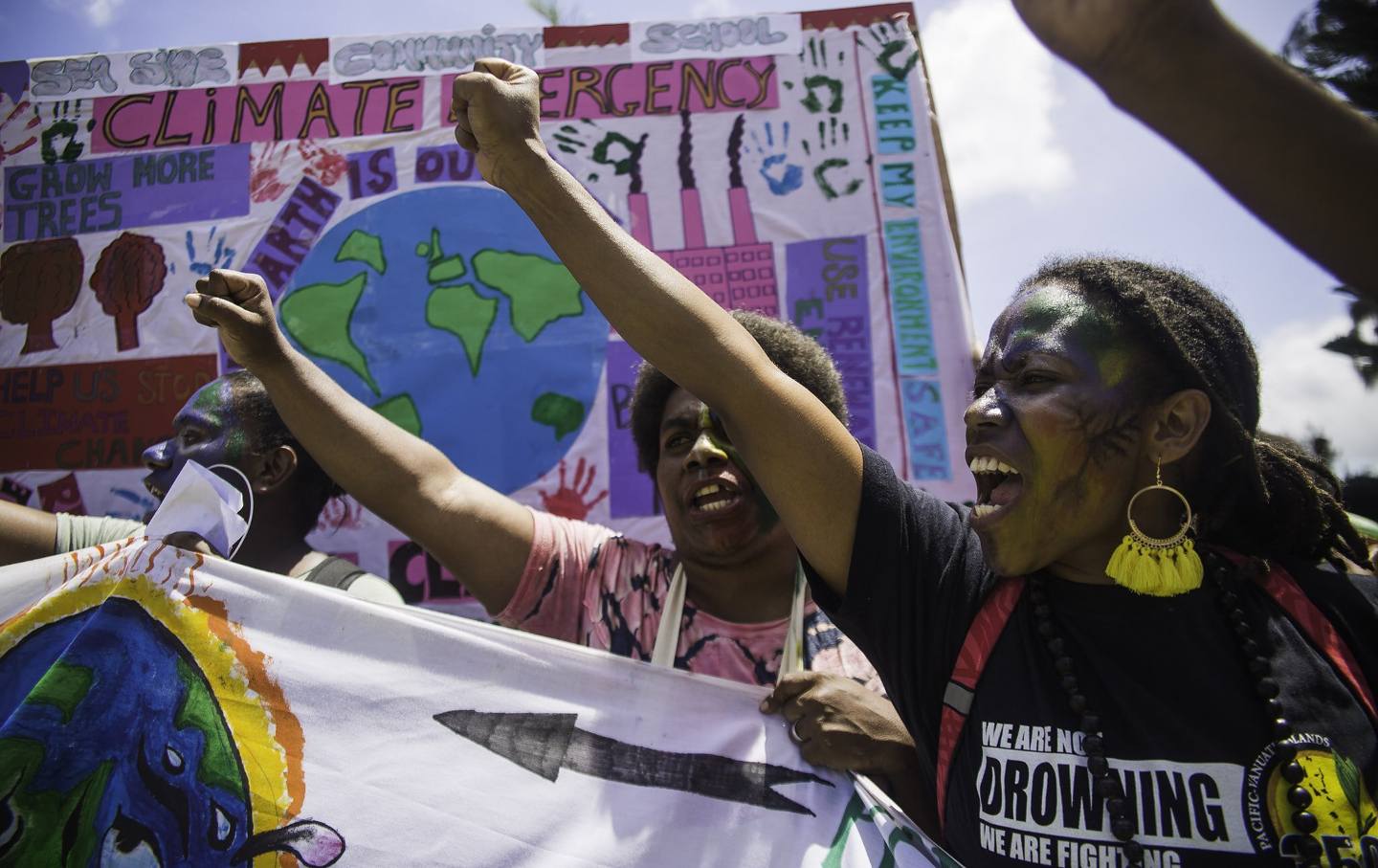
An action by World’s Youth for Climate Justice.
(WYCJ)This article originally appeared at TomDispatch.com. To stay on top of important articles like these, sign up to receive the latest updates from TomDispatch.com.
The wording in Article IX, Section 1, of Montana’s constitution couldn’t be clearer: “The state and each person shall maintain and improve a clean and healthful environment in Montana for present and future generations.” Accordingly, in April, a district court judge in Yellowstone County voided a permit for a natural-gas-fired power plant under construction there. Over its lifetime, it would have released an estimated 23 million tons of planet-roasting carbon dioxide and that, ruled the judge, was incompatible with a “clean and healthful environment” in Montana or, for that matter, anywhere else.
Within a week, the state legislature had voted to reinforce a 2011 law barring the consideration of climate change in policymaking and so allowing the construction of the power plant to resume. But that wasn’t the end of the matter. Last month, the lawmakers were slapped down a second time when another district judge ruled in favor of a group of 16 youthful Montanans in a suit filed in 2020 seeking to strike down that very 2011 anti-climate legislation.
In her ruling, Judge Kathy Seeley wrote, “Montana’s climate, environment, and natural resources are unconstitutionally degraded and depleted due to the current atmospheric concentration of [greenhouse gases] and climate change.” She added that “every additional ton of greenhouse gas emissions exacerbates Plaintiffs’ injuries and risks locking in irreversible climate injuries.” The state, she made it abundantly clear, is obligated to correct such a situation.
The plaintiffs, who were all in their teens or younger when their suit, Held v. Montana, was filed three years ago, are represented by a nonprofit group, Our Children’s Trust. Since 2011, it has been pursuing climate action on behalf of this country’s youth in the courts of all 50 states. The Montana case was simply the first to go to trial. The second, a climate case against the Hawaii Department of Transportation, is scheduled to begin next summer.
Matt Rosendale, a Montana Republican serving in the House of Representatives, responded to the Held v. Montana decision with the worst sort of condescending bluster. “This is not a school project,” he insisted. “It’s a courtroom.… Judge Seeley did a huge disservice to the courts and to these youths by allowing them to be used as pawns in the Left’s poorly thought-out plan to ruin our power grid and compromise our national security in the name of their Green New Fantasy.”
The only fantasy, however, was Rosendale’s characterization of the proceedings. The plaintiffs’ case was overwhelmingly persuasive, with extensive testimony from climate and pediatric health experts showing that people younger than 25 were going to be especially vulnerable to the many impacts climate change is going to have on physical and psychological health. In her ruling, Seeley summarized some of the damages to which the plaintiffs had testified.
All of the young people in the suit were afflicted with allergies and asthma (three especially severely) and had suffered significant health problems thanks to the unavoidable inhalation of smoke from North America’s ever-increasing wildfires. Much of that damage had occurred during Montana’s horrendous fire seasons of 2017 (when more than 2,400 fires burned across 1.4 million acres of the state) and 2021 (when more than 2,500 fires burned almost 1 million more), followed, of course, by the smoke from the devastating and ongoing Canadian wildfires of this spring and summer.
Three Indigenous plaintiffs testified that climate disruption has already ensured that their traditional sources of food and medicinal plants would become ever scarcer. As a result, it is preventing them from taking part in their usual cultural practices, including ones involving increasingly scarce snow. As the lawsuit put it, the changing planet has “disrupted tribal spiritual practices and longstanding rhythms of tribal life by changing the timing of natural events like bird migration.”
Testimony also showed that the extreme heat of recent summers, only expected to grow more severe in the coming years, is threatening the health of the plaintiffs, all of whom engage in extensive outdoor work or recreation. Those who participate in competitive sports have seen their training severely curtailed by summer heat (and for one of them, a Nordic skier, by lack of winter snow). The plaintiffs’ ability to hunt and fish, especially important in Montana, is being dramatically limited by drought and wildfire.
Some of the plaintiffs testified that increasing damage from storms, flooding, wildfires, and drought will make it ever more difficult, if not impossible, to keep their family’s property intact for coming generations. And backed by the testimony of several experts, the young plaintiffs explained how the increasing chaos brought on by climate change had left them with feelings of deep distress, despair, and loss.
Congressman Rosendale undoubtedly read none of their testimony, which made it so much easier for him to callously dismiss their plight, while accusing them of being witless “pawns” of far greater forces. How, after all, could anyone have been left unmoved by the poignant testimony of 20-year-old Olivia Vesovich? She told the court that, given the severe and ever worsening impact of climate change, she “would not want to make a child endure that. It is one of the greatest sadnesses of my life—and my family is one of the most important parts of my life—that I may not be starting a family of my own. It breaks my heart, it really does.”
Plaintiffs from the Future
From the 1990s through the first two decades of this century, academic discussion of “intergenerational climate justice” weighed the interests of the “current generation” that may or may not do what’s needed to end greenhouse gas emissions against “future generations” lacking any say in the matter. They will nonetheless suffer its increasingly severe consequences. (Of course, those of us in privileged societies have also largely ignored the billions of people globally with no say in the matter and so the functional equivalents of those “future generations.”)
Popular
“swipe left below to view more authors”Swipe →Now, with heat waves, megafires, increasingly severe freak storms, and floods striking ever more often, those at-risk future generations are finally beginning to show up, well ahead of schedule. That, after all, is just what the Held v. Montana plaintiffs are, as are the young Global South activists who shook up the most recent world climate summits by refusing to accept the selling-out of their future.
Though it’s cited often enough in relation to climate change, there’s nothing magical about the year 2050. It’s just a nice, round, mid-century number. That’s undoubtedly why world climate negotiators have chosen it as the target year for national pledges to drive greenhouse gas emissions down to zero.
Come 2050, the Montana plaintiffs will only be in their 30s and 40s. By that time, they should know whether the world acted boldly enough in the 2020s to turn the climate emergency around.
In court, the young plaintiffs expressed deep concern not only for their own health and well-being but for those of their potential children and grandchildren. What kind of future will they and their kids face? For one thing, those still living in Montana in 2050 can expect to deal with wildfire and smoke disasters far worse than the ones endured in 2017, 2021, or 2023. Predictions are that, without drastic action, between 2041 and 2070, much of Montana will see a 600 percent increase in the incidence of “very large wildfires”—those covering 20 square miles or more.
The fire risk will have been raised largely by intensifying global heat. Consider this warning from US government scientists, should the world economy carry on with business-as-usual in the coming decades:
[A] teenager in eastern Montana in 2075 might experience maximum summer temperatures that his or her grandparents would have had to travel to the Mojave Desert to see, [while] a child born in southern Texas in 2060 might experience as much as 6 weeks per summer when maximum temperatures are hotter than his or her grandparents experienced just once per year. And in this same future, a child in the southeastern United States can expect to spend more than half of his or her summer experiencing heat waves that would have occurred only 3 days per year for his or her grandparents.
Unless there are steep reductions in global carbon emissions, Montana will be eternally burning, while much of the country to the south and east grows even hotter and more unbearably humid. So, should young Montanans migrate north to Canada? At one time, that seemed like a viable climate escape route. But in 2023, with a large share of the US population inhaling smoke from the extraordinarily vast and intense wildfires burning across that country, month after month, northward migration could just be a jump from the frying pan into the all-too-literal fire.
A Constitutional Right to a Future
Such dire forecasts are based on worst-case “business-as-usual” scenarios, and that’s important. After all, catastrophe is not inevitable. If today’s youth find themselves facing such nightmares in the 2050s, it will be because our nation and the rest of the world didn’t act in a necessary fashion in this decade. Such conditions can indeed be prevented, but only if the climate struggle intensifies.
When the Montana 16 filed their suit in 2020, only two of them were old enough to vote in that fall’s election. But as Judge Seeley ruled, they all had standing to challenge the fossil-fuel juggernaut in a court of law. And so far, they’re winning.
Amber Polk, assistant professor of law at Florida International University, focuses her studies on new legal claims by the environmental rights movement. She recently wrote a short history of “green amendments”—constitutional provisions like the section of Article IX on which Held v. Montana relied. Hawaii, Illinois, Massachusetts, Montana, and Pennsylvania all added such provisions to their state constitutions in the 1970s, as environmentalism was surging. But in the 1980s and 1990s, legal cases based on green amendments foundered until, in 1999, the Supreme Court of—you guessed it!—Montana struck down laws that permitted water pollution, basing their decision on the constitutional “right” of state residents “to a clean and healthful environment.”
Fourteen years later, Pennsylvania’s Supreme Court relied on a similar green amendment to strike down a law permitting hydraulic fracturing (“fracking”) statewide. Until Held v. Montana, though, green amendments had not been used to challenge laws explicitly affecting climate policy. Count on one thing, however: they will be widely tested in the coming years (though a conservative, anything-but-environmentalist Supreme Court could prove a problem in wielding them).
The Montana case, writes Polk,
“sets a groundbreaking precedent for climate litigation and demonstrates a new way in which green amendments can be invoked to elicit environmental change. It suggests that in other states with green amendments, state laws cannot forbid the consideration of greenhouse gas emissions and their climate impact during environmental review…. In the states that have green amendments, climate advocates will certainly rely on the Montana youth case as they challenge state laws that promote climate change.
And expect ever more challenges in places where such green amendments exist. New York typically passed one last year and 13 other states—some red like Montana, some blue, some purple—are considering them, according to Polk.
Unfortunately, only limited reductions of greenhouse gases can be achieved via state-by-state challenges to bad laws. Congressional action would be needed to, for example, achieve the most essential policy of all: a rapid, mandatory phaseout of oil, natural gas, and coal nationwide. You would, however, need a very different Congress to have a hope in hell of passing such a bill. Still, such a phaseout is a goal of Juliana v. United States, another youth climate lawsuit, originally filed in federal court in 2015 and still pending after eight long years.
In that case, 21 plaintiffs, aged seven to 19 (at the time of its filing) and backed by Our Children’s Trust, allege that the federal government has permitted the continued extraction and burning of fossil fuels despite knowing that they cause “dangerous concentrations of CO2 in the atmosphere and a dangerous climate system, and irreversible harm to the natural systems critical to Plaintiffs’ rights to life, liberty, and property.” These activities, it adds, “unconstitutionally favor the present, temporary economic benefits of certain citizens, especially corporations, over Plaintiffs’ rights to life, liberty, and property.”
In Juliana, the youthful plaintiffs are asking the courts to order the federal government to take wide-ranging, ambitious climate action, including “to prepare and implement an enforceable national remedial plan to phase out fossil fuel emissions and draw down excess atmospheric CO2.”
Three administrations—Obama’s, Trump’s, and now Biden’s—have vigorously fought back against the youths’ case and, in 2021, it appeared doomed when an appeals court ruled that the plaintiffs lacked standing. This summer, however, Juliana came back from the dead when a federal judge in Oregon ruled that the plaintiffs could proceed to trial after amending their filing. It remains in limbo, however, thanks to continued fierce opposition from President Biden’s Department of Justice. As CNN reported, the DOJ “has argued there is no federal public trust doctrine that creates a right for a stable climate system for US citizens.”
Such a refusal to take climate disruption seriously came even as the president was touring the country and bragging about energy and electric-vehicle projects related to the climate provisions in last year’s Inflation Reduction Act. Biden, it seems, is happy to take credit for limited green actions, but isn’t faintly ready to plan for truly phasing out fossil fuels and so keeping the world livable through this century and beyond. So, give some credit to the young who are pushing him, the courts, and Congress to ensure that they have a future worth living for. In truth, nothing matters more than that.
More from The Nation
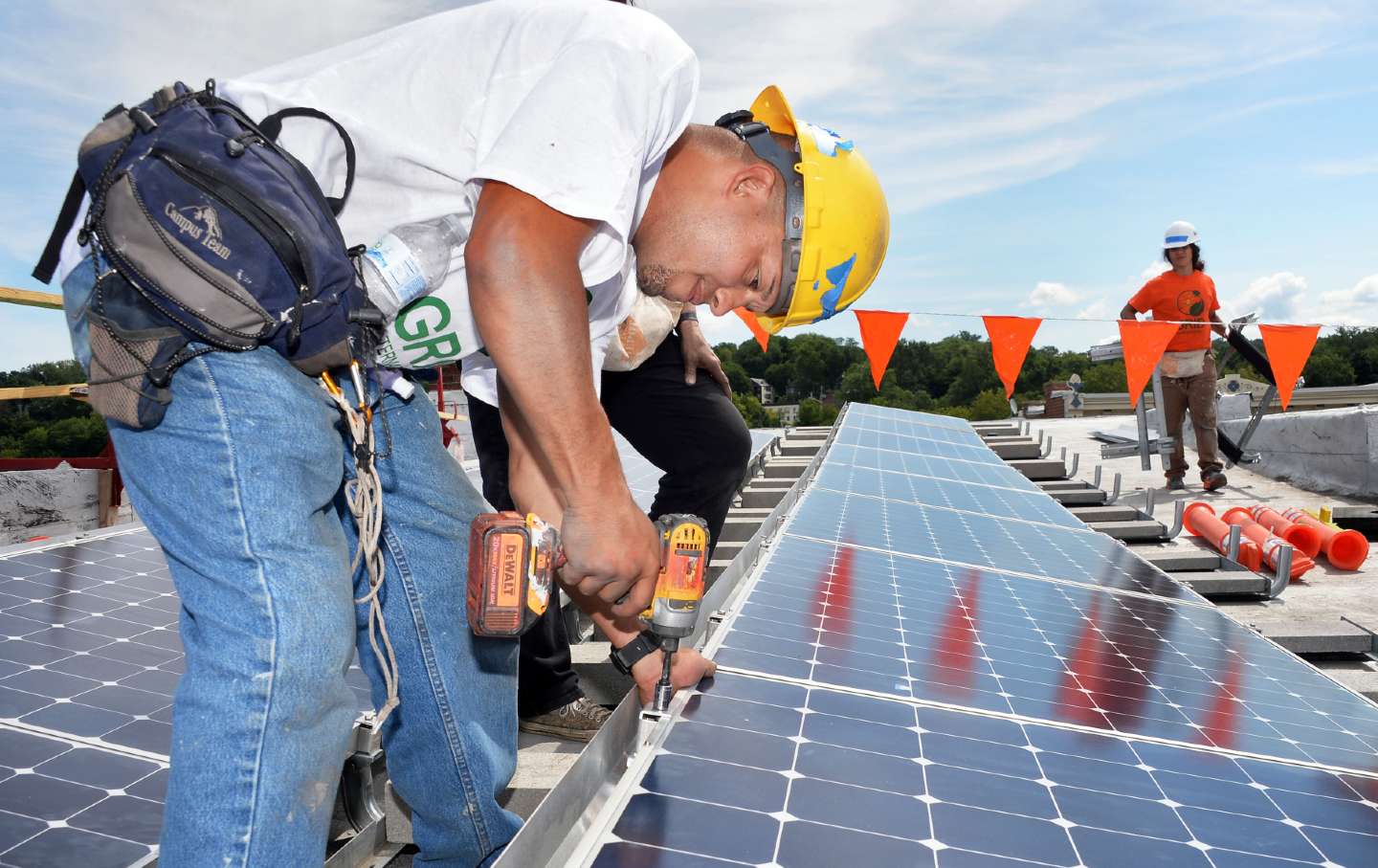
This Solar Panel Kills Fascists This Solar Panel Kills Fascists
New York’s Build Public Renewables Act will reduce carbon in the atmosphere, combat inequality, and help workers. It might also defeat Trumpism.
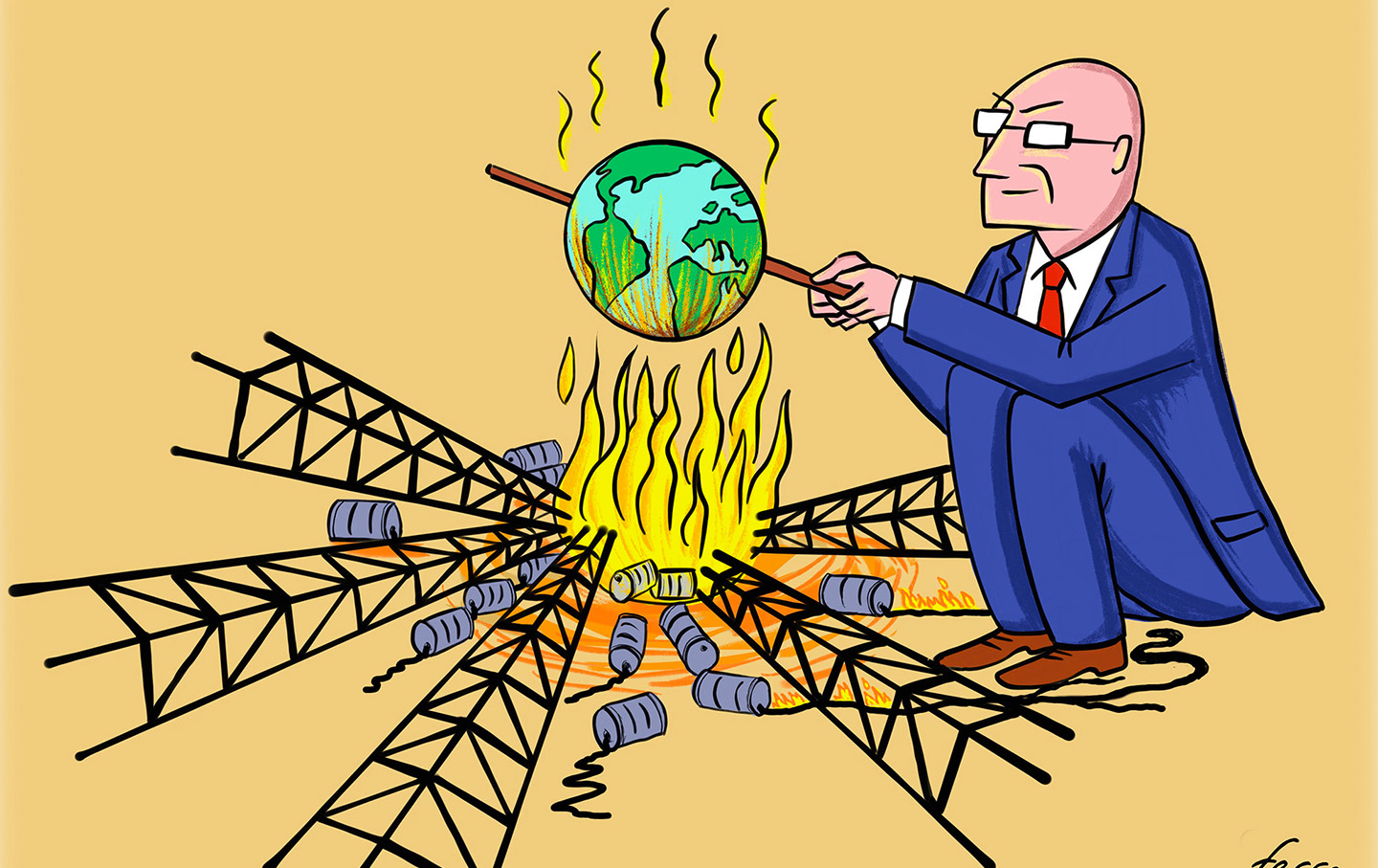
Global Burning Global Burning
The oil industry denies climate change, opposes regulations, and significantly contributes to the environmental crisis.
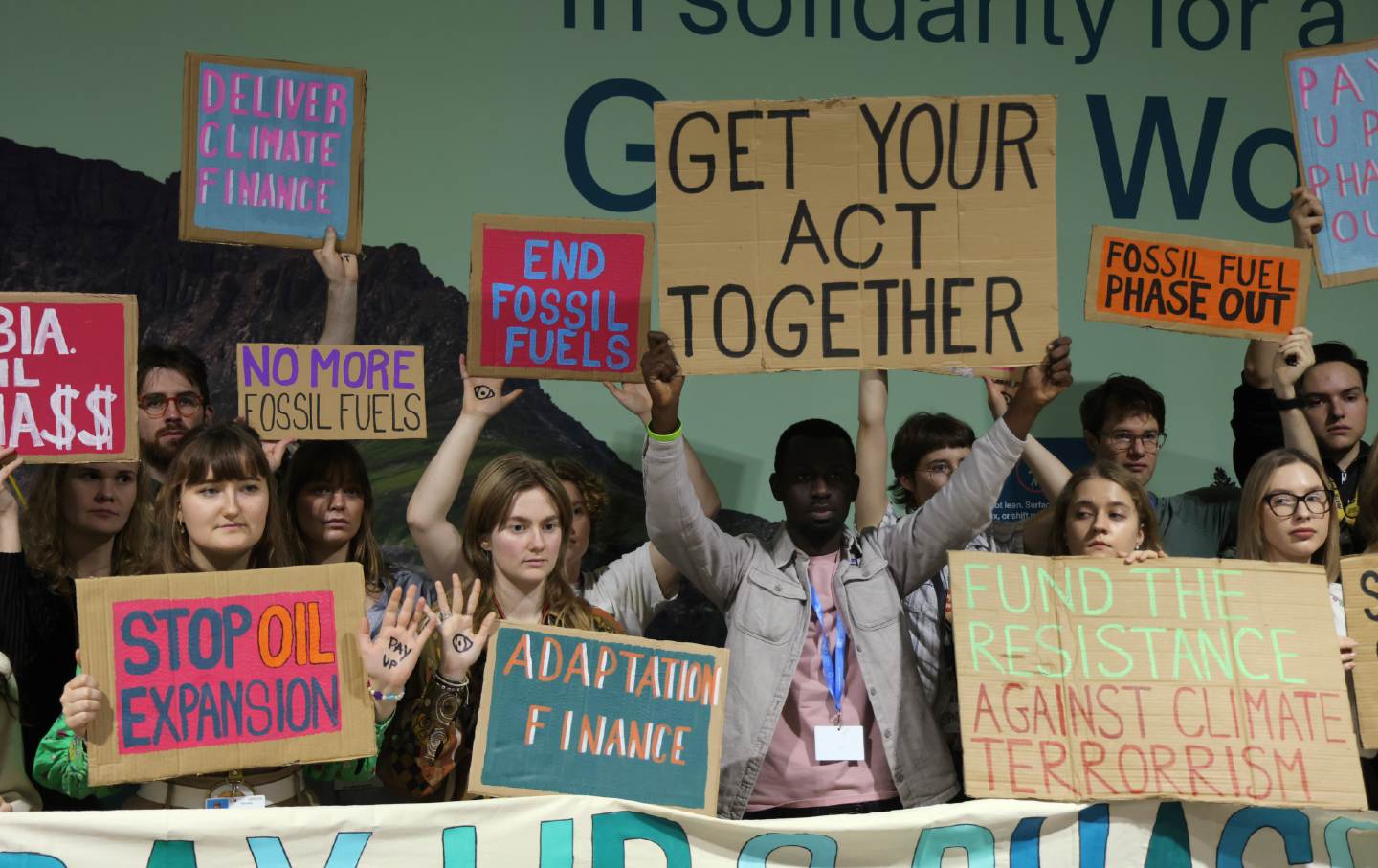
The “Worst COP” Concludes With a “Heartbreaking” Climate-Finance Deal The “Worst COP” Concludes With a “Heartbreaking” Climate-Finance Deal
Activists say the climate agreement effectively signed away the 1.5-degree Celsius target—”our only real chance to safeguard humanity’s future.”

Climate Change Is the Real National Security Threat Climate Change Is the Real National Security Threat
In the wake of Hurricanes Helene and Milton, it’s clear we’re defending against the wrong perils.
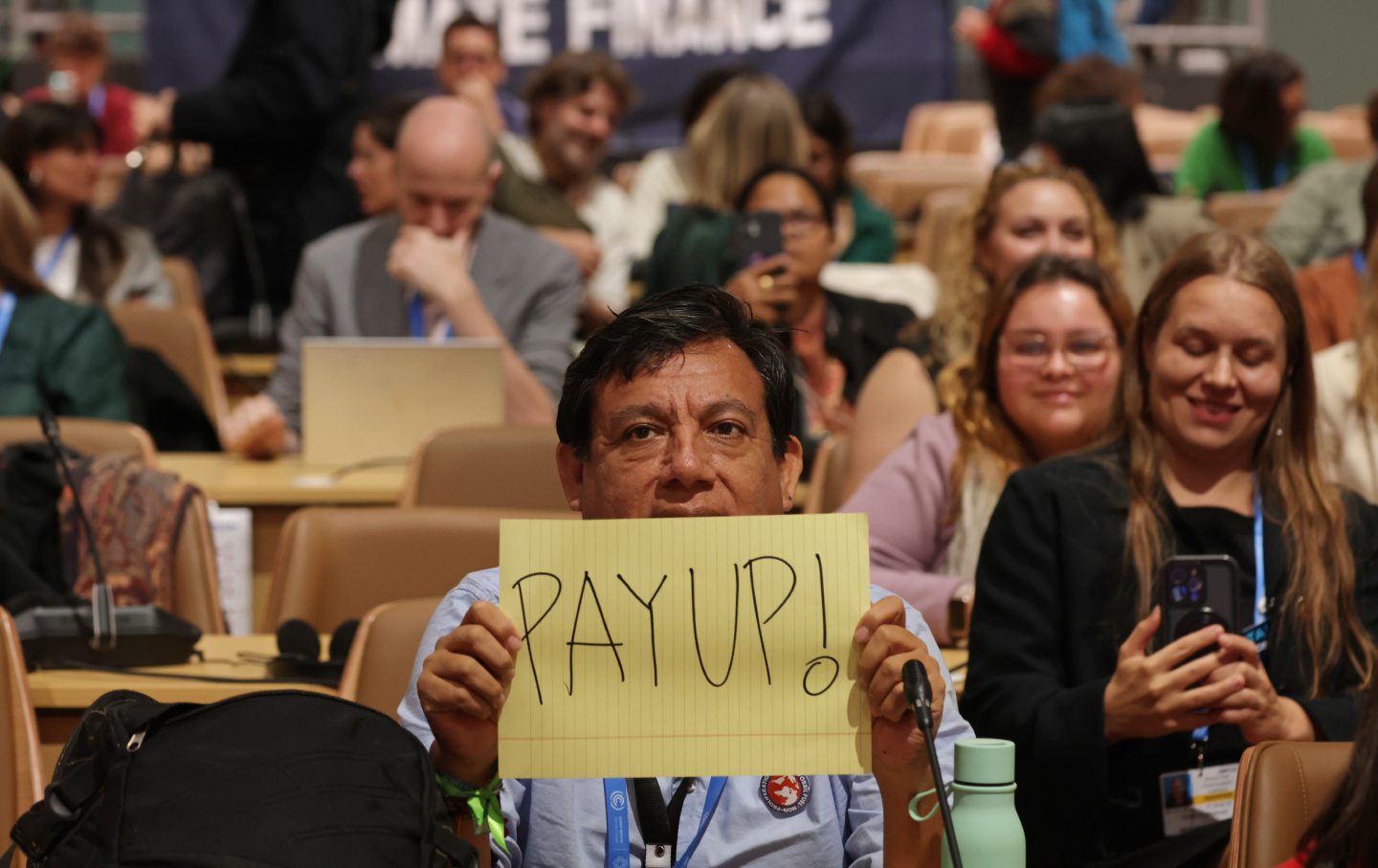
Rich Countries Must Pay Up or Humanity Will Pay the Price Rich Countries Must Pay Up or Humanity Will Pay the Price
The climate activist Lidy Nacpil says the climate bill owed to developing nations is in the “trillions, not billions.”
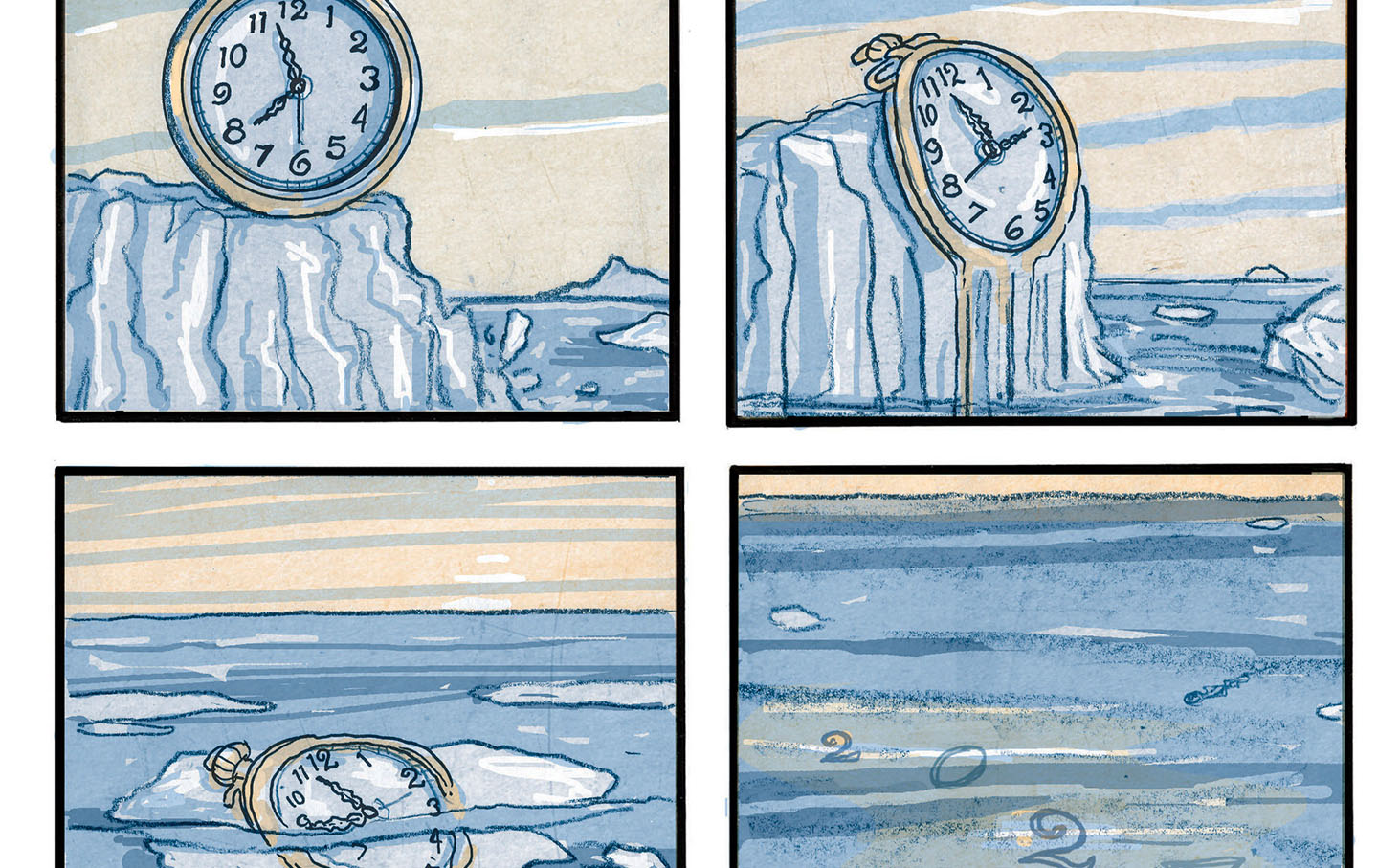
Acting on Climate Change? Acting on Climate Change?
The opportunity is melting away.


